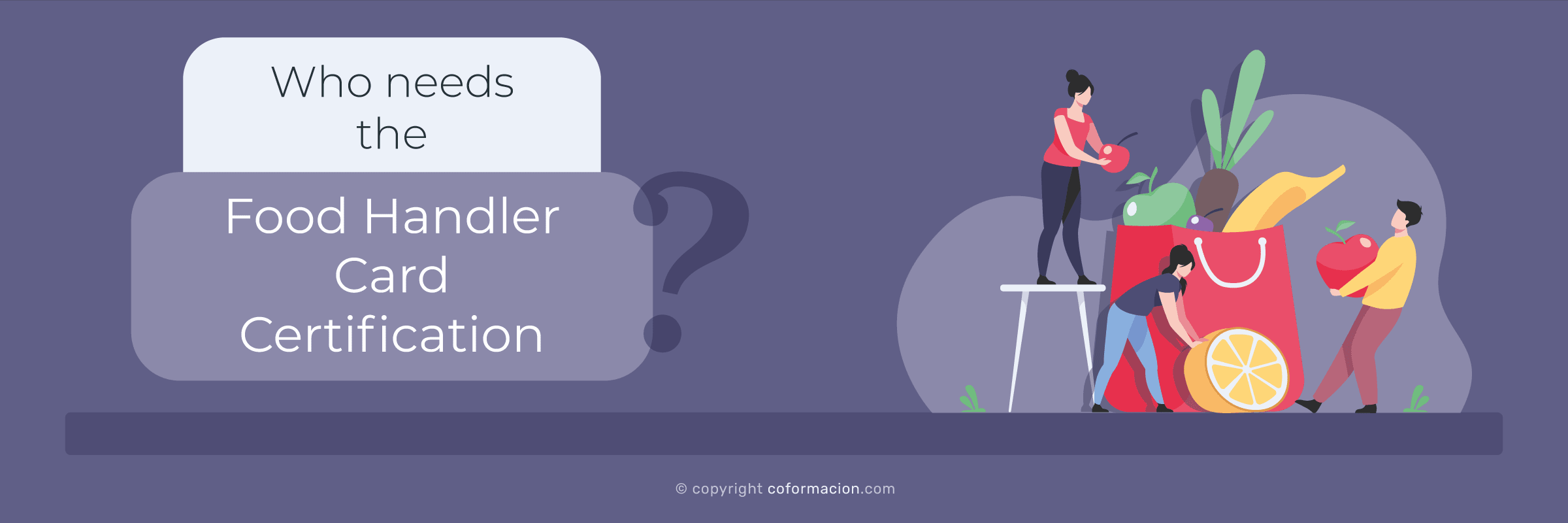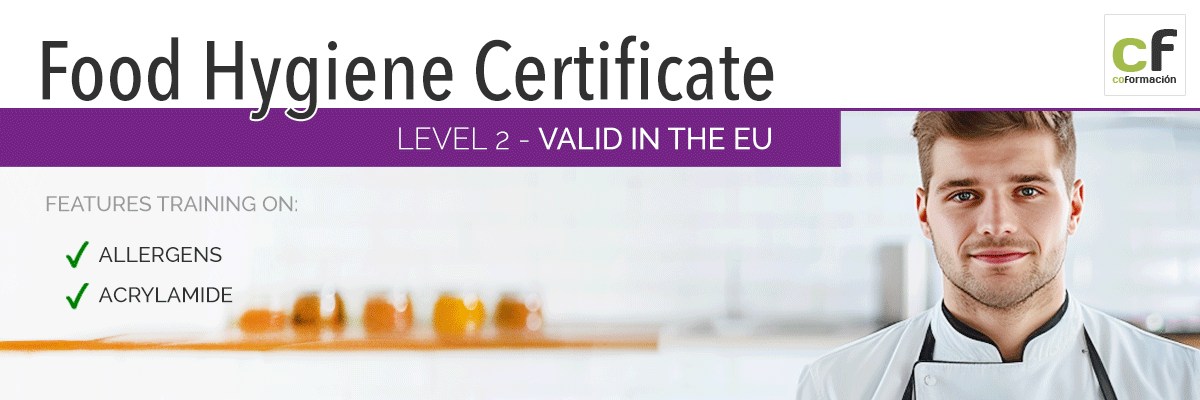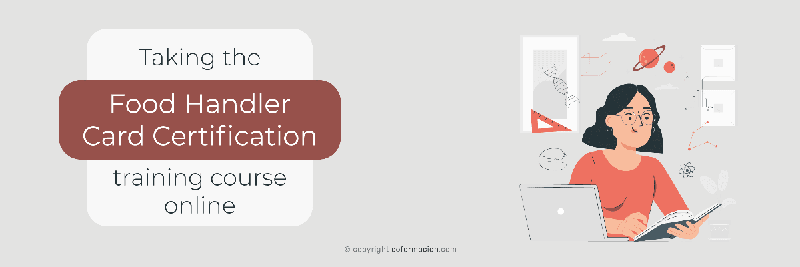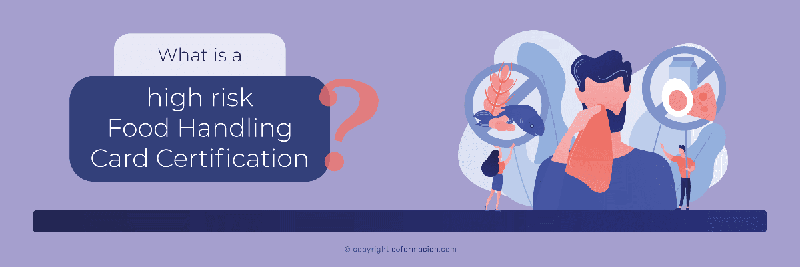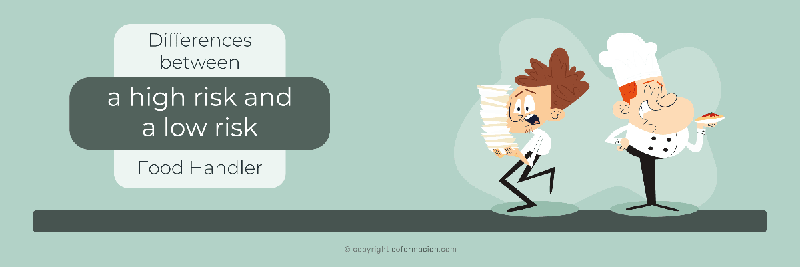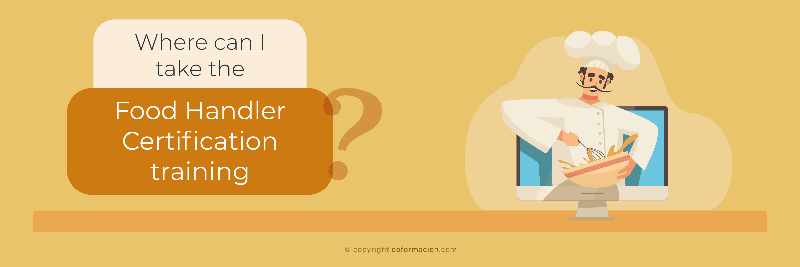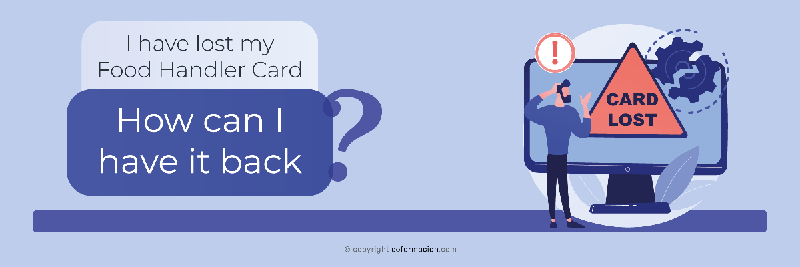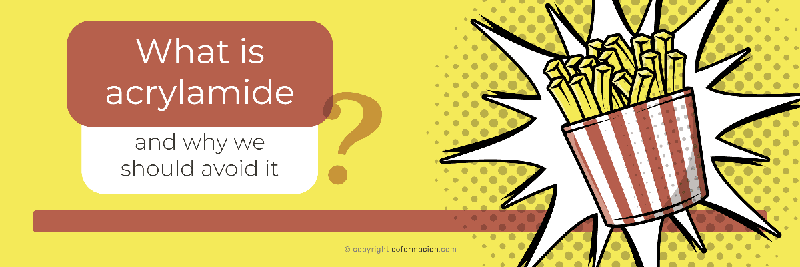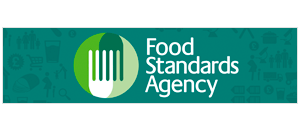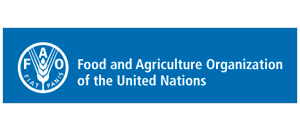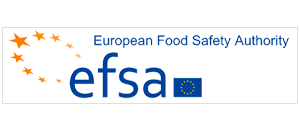Who needs the Food Handler Card Certification?
01/28/2021We already know that food is easily contaminated and that we must be careful when working with it. That is why, at the workplace level, it is essential to have adequate training to avoid errors in its handling that can cause health damage to consumers.
To this end, the law requires us to have such training , usually in the form of a certificate or food handler course. Not only because the Regulations require it, but also to maintain proper food hygiene. Thus, any worker who is in direct or indirect contact with food must have this training and be able to prove it.
And this applies to all sectors that, in one way or another, work with food, whether in the hotel, restaurant, food, transport, packaging, etc. All of them must have the corresponding certificate that entitles them to do so.
Table of contents:
Why is it necessary to have a food handling card?
We have already indicated that, according to the current regulations (RD 202/2000), it is a legal requirement that all those who are going to work handling food have this training. This is a win-win situation for all of us, as having this card is an additional guarantee for the health of all of us as consumers.
In any case, the most important thing is the sanitary aspect. Food handlers should be aware of food hazards and sensitive to avoid them. Let's get to know them and apply the appropriate guidelines. That is to say, the most important reason is not because it is required by law, but because we are really concerned about the health of the consumers.
In this sense, the course we offer in Coformacion, in addition to being 100% legal and valid throughout Spain and the rest of the EU, is also versatile and covers all points of the food chain . Thus, from preparation to supply and service, including manufacturing, processing, processing, packaging, storage, transport, distribution and sales. Everything is contemplated in our course.
It is also important to note that our course is multisectoral. That is to say, it is valid for different sectors and you will not need to get a specific card for each sector. It recalls that, according to the Law, a food handler is "a person who, through his work, has direct or indirect contact with food during its various stages: preparation, manufacture, processing, processing, packaging, storage, transport, distribution, sale, supply and service".
Jobs where you need the food handler card
There are many sectors where training in food handling is needed. As we have already seen, it is enough if the work involves direct or indirect handling of food. Therefore, more than a specific sector, the important thing is to assess whether this is the case in our job. If so, then we need the training.
That said, these are some, but not all, of the sectors affected by the Regulations: hospitality and catering, food, nursing homes, transport and distribution, frozen foods, warehouses, nurseries, retail, processing industry, school canteens, etc.
In the same way, these are some of the most common professions: cooks, kitchen assistants and assistants, waiters, cashiers, replacers, fruit pickers, butchers, fishmongers, shop assistants, kiosks, transporters, stewardesses and tasters, delivery girls, etc.
As we can see, the spectrum is very broad. The good news is that if you train with a course like ours, which is multi-sector and includes training in high/higher risk handling, this training will be good for different jobs. However, it is possible for the contracting company itself to extend this training with specific training for the specific job to be developed.
How to get your food handling card
Nowadays, obtaining the food handler certificate or card is very easy , since it can be done completely online , which is not only more convenient, but is also usually quite cheaper than doing it on site. Nowadays, through the Internet, you only have to take the corresponding course and pass the exam that guarantees a correct completion of the course. All this without leaving your own home.
You may also have the option of getting it through a public organization or through a local organization such as your local council. In both cases, the course may even be free of charge. The main problem with this type of training is that, firstly, it is usually difficult to get a spot, secondly, dependent on the deadlines indicatedby the specific organism and, thirdly, it is usually costly in terms of time. It is not uncommon to find some of these courses where you have to attend several days (sometimes up to 10 days) and receive only 1 hour of lessons per day.
On the other hand, some companies (usually large companies) have departments specialized in internal trainingthat are responsible for training their employees in this and other subjects.
In any of the three cases, and as long as the course is done according to the current regulations, the course is equally valid. It will be up to each individual case to decide which is the most suitable for each case.
As far as we are concerned, our course is offered totally online, which will allow you to do it in a comfortable way and at your own pace from the comfort of your own home. All this at a really low price . Please contact us for more information.More Articles
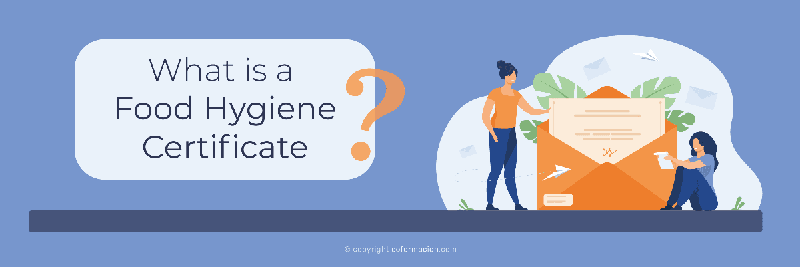
What is a Food Hygiene Certificate?
05/05/2021
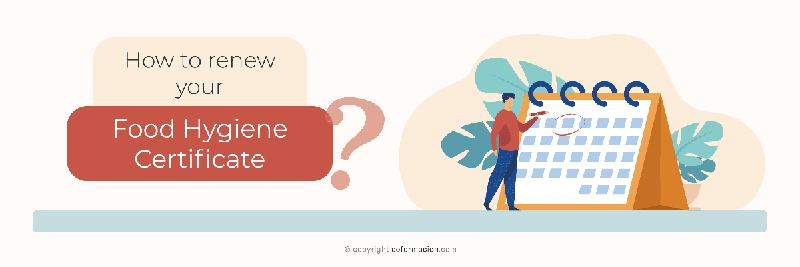
How to renew your Food Hygiene Certificate
04/20/2021
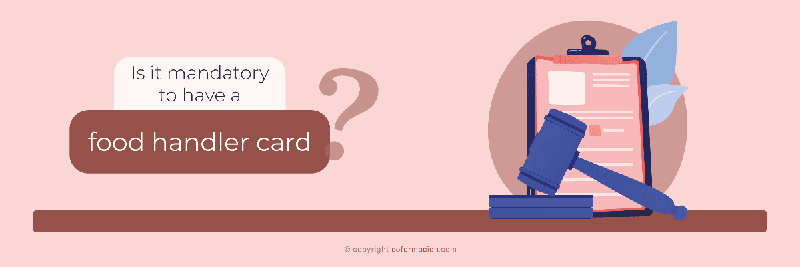
Is it mandatory to have a Food Handler Card?
04/08/2021
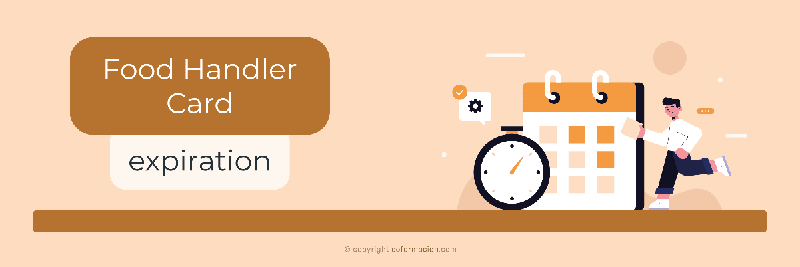
Food Handler Card expiration
03/04/2021
